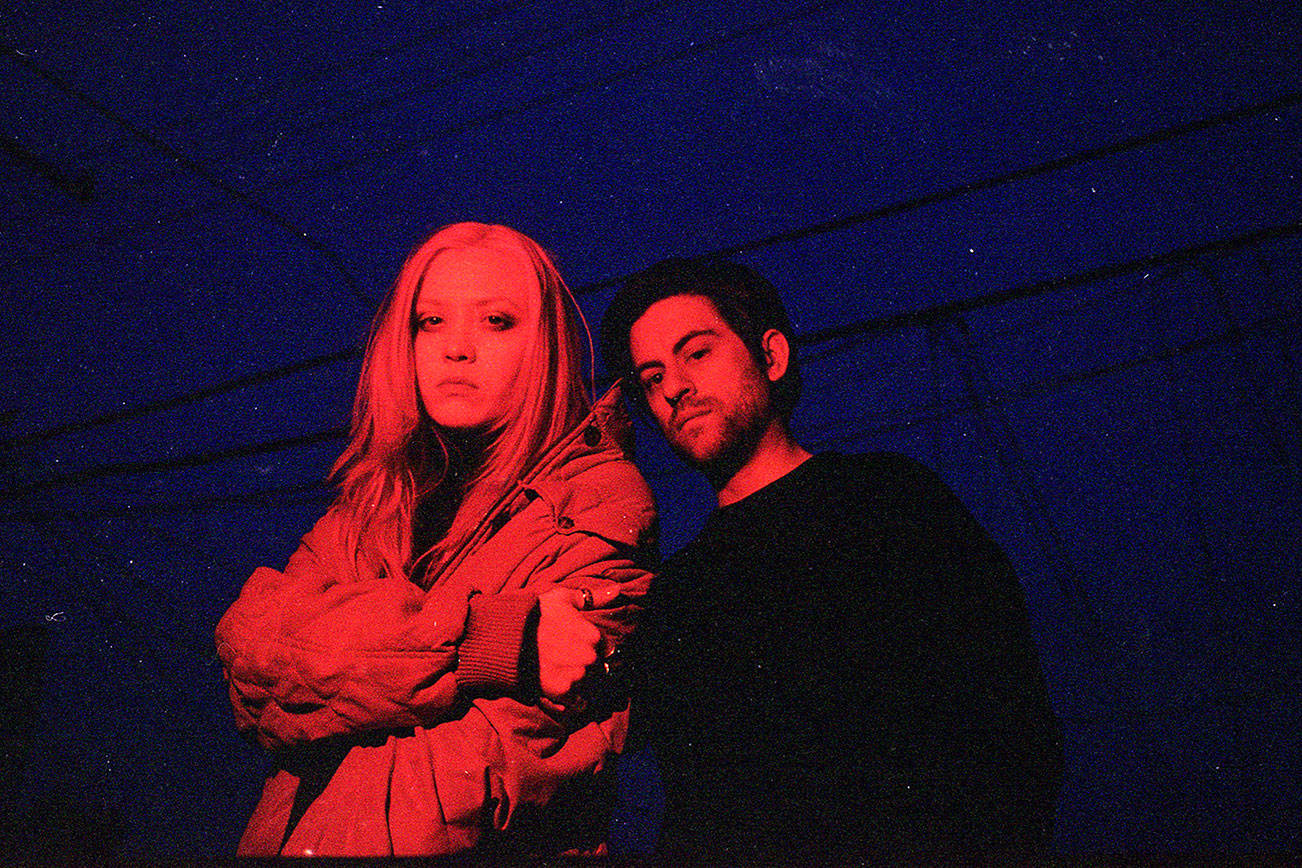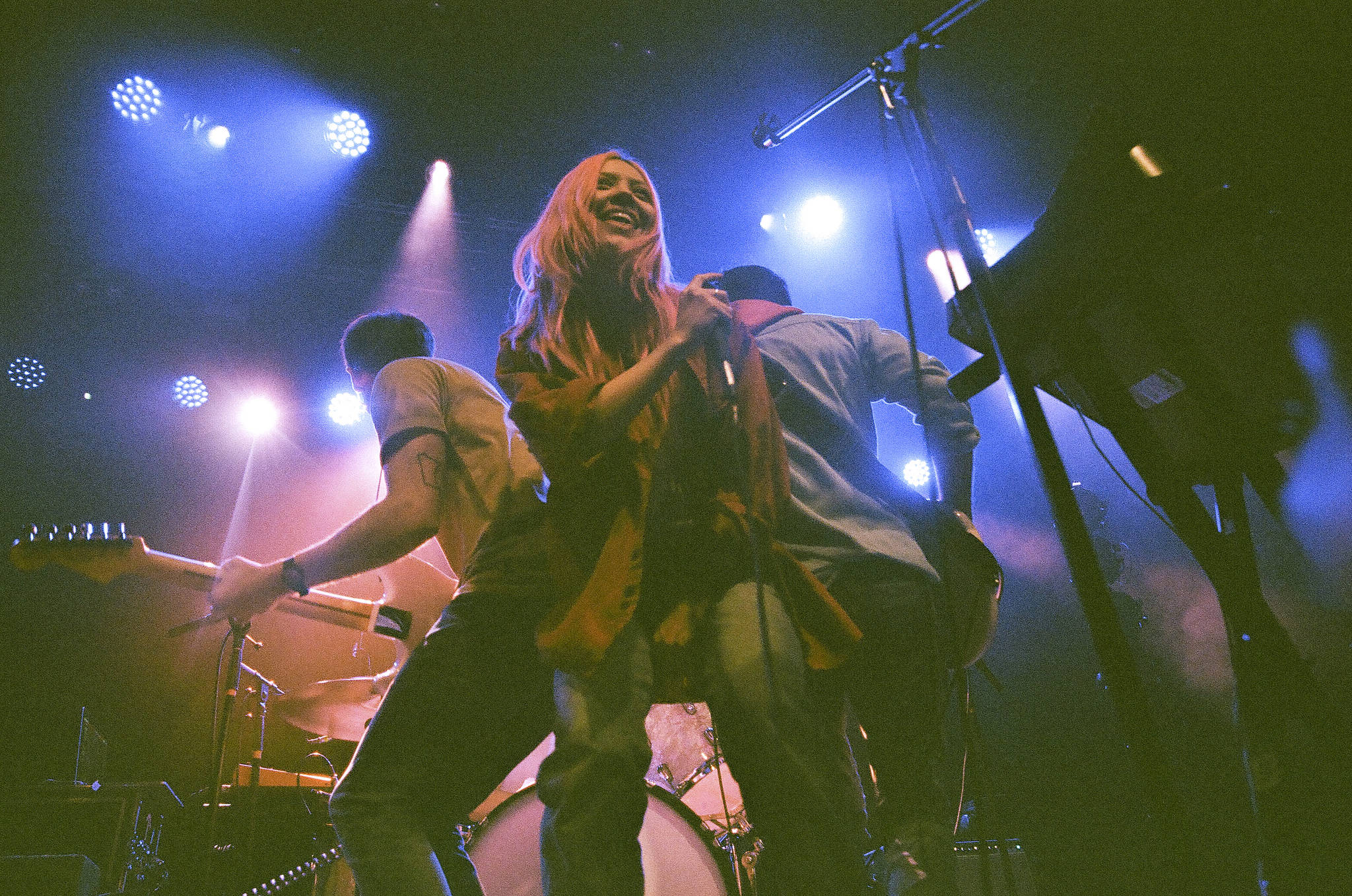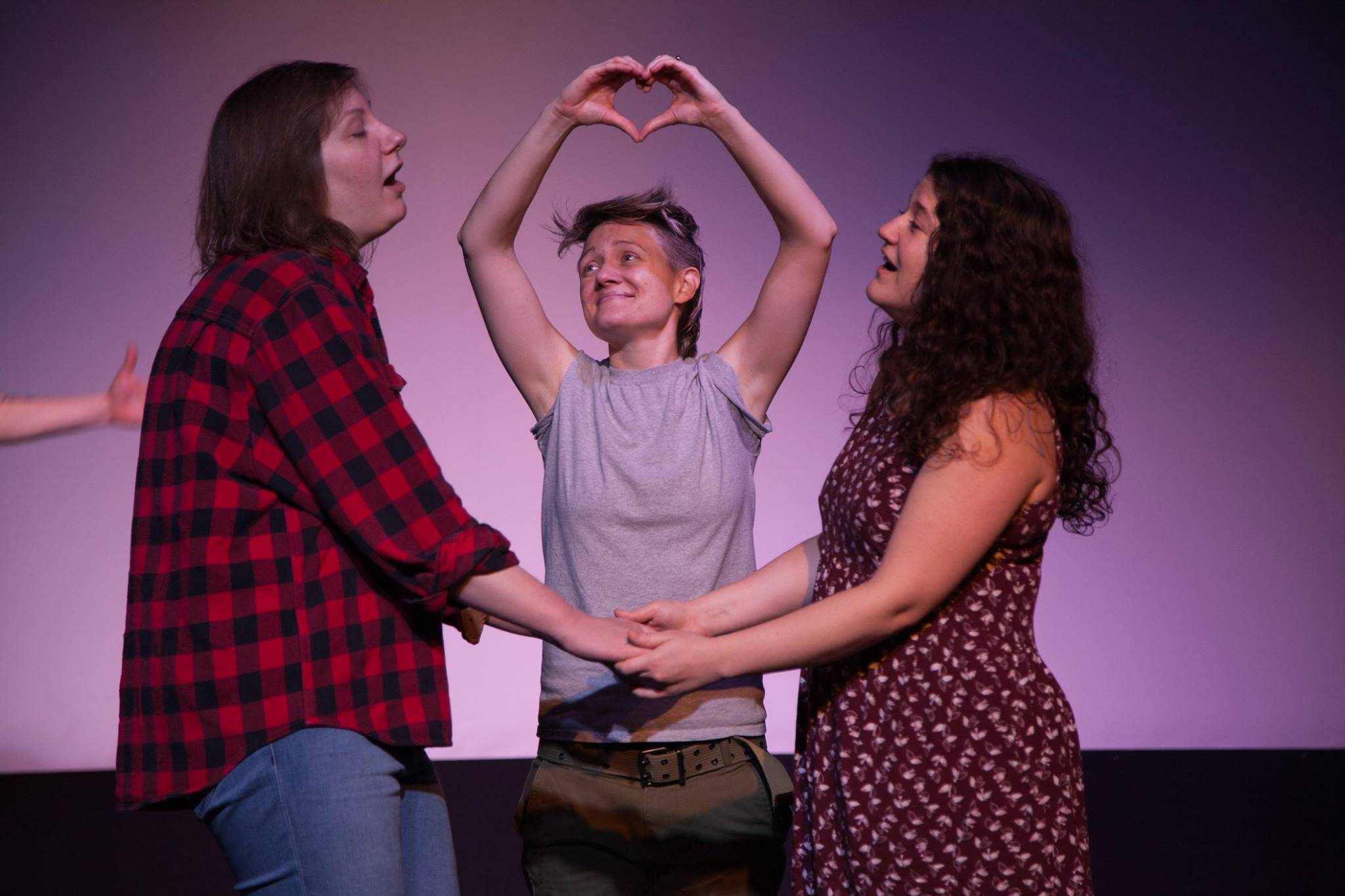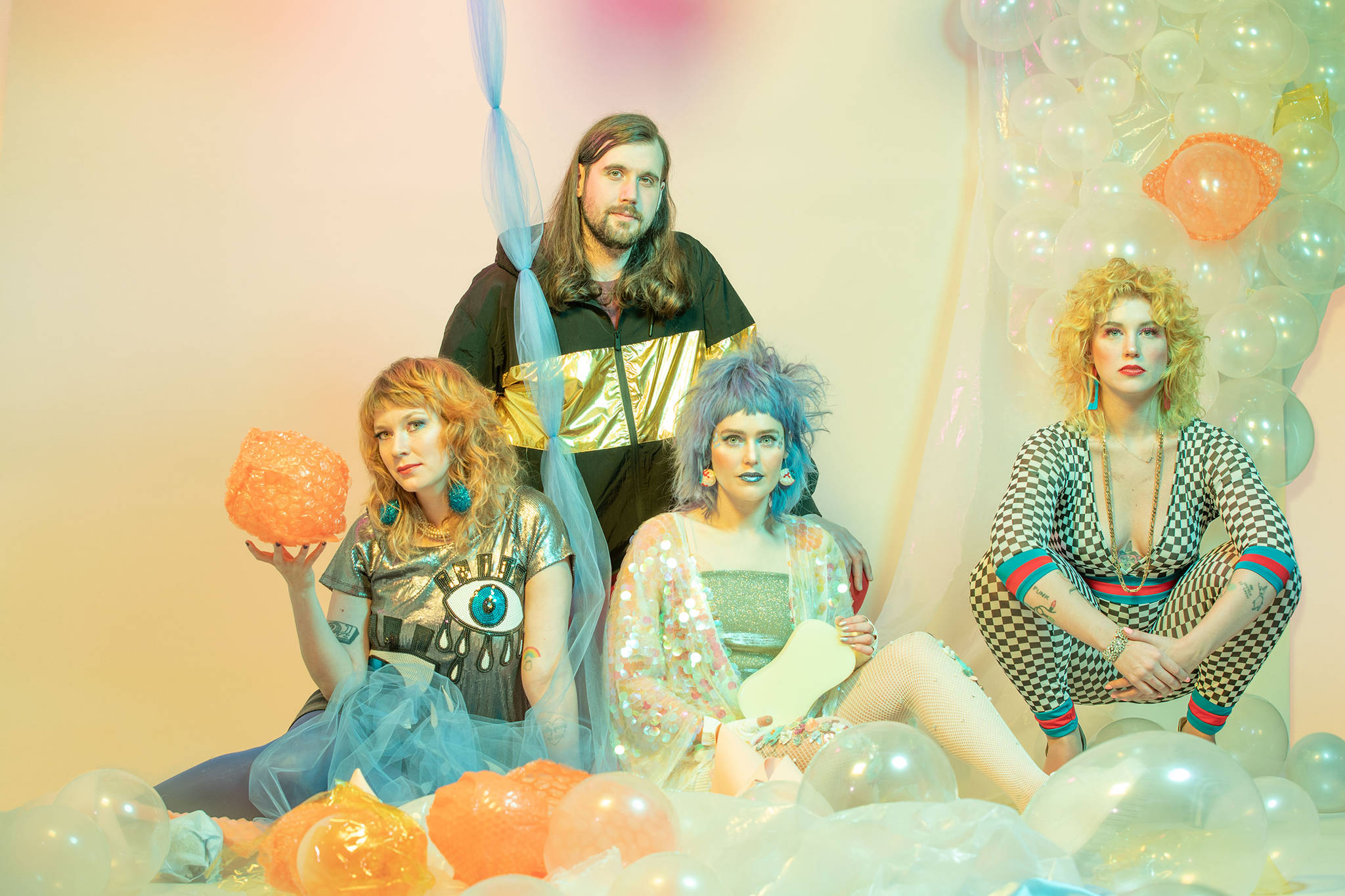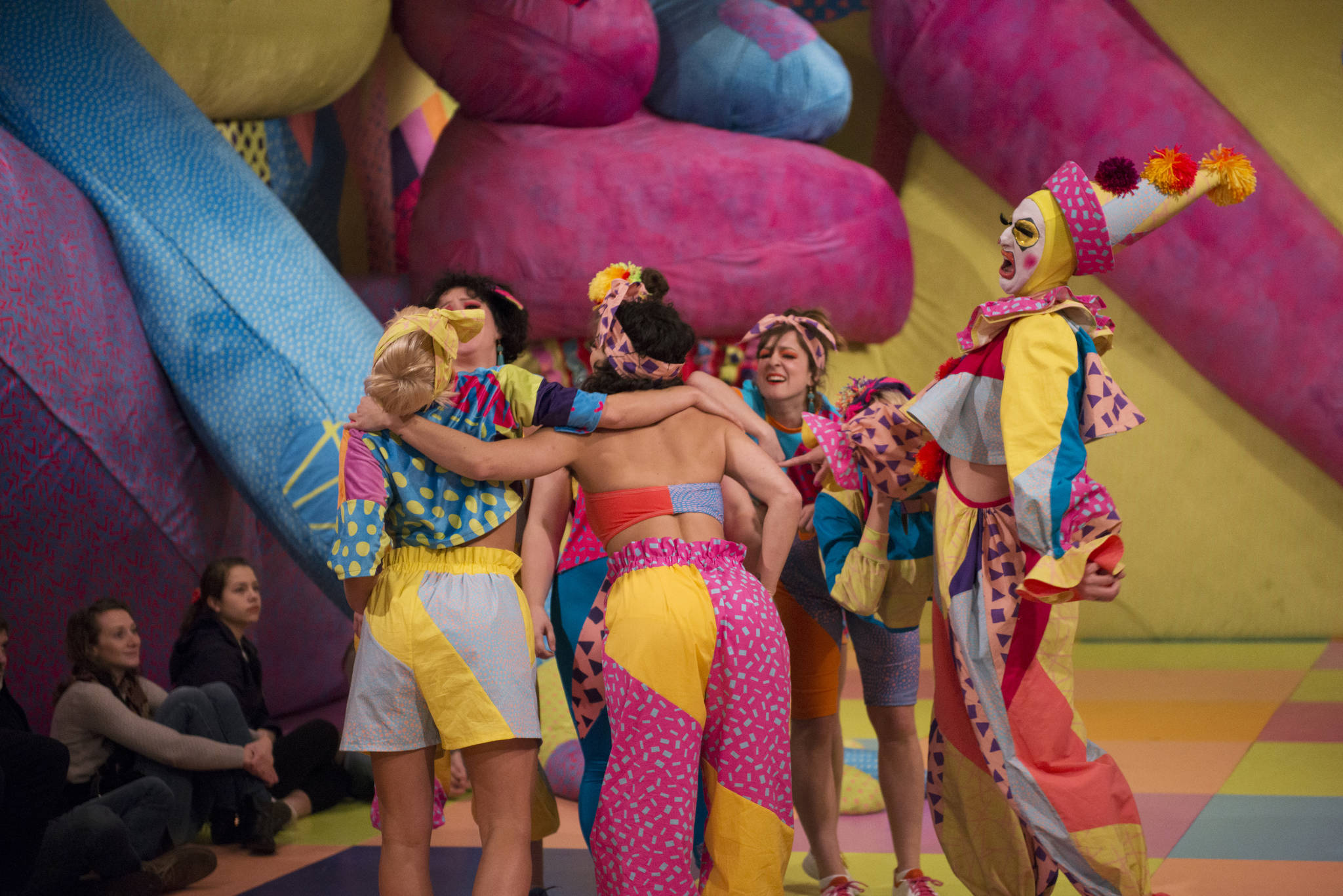There are times when music makes no sense and it’s absolutely beautiful. When Now, Now rolled into The Crocodile on Sept. 5, 2017, it had been more than four years since the Minneapolis indie-rock group had played a show in Seattle. In the time between, the band—comprising high-school pals KC Dalager (vocals/guitar) and Brad Hale (drums/electronics)—had largely been radio-silent, though a careful reading between the lines hinted toward monumental struggles while attempting to write new music. Before a prolonged departure after 2013’s tours, the band had hovered in the lower tier of indie-rock success building a modest fan base on the strength of their stellar 2012 album Threads (put out via Chris Walla’s Seattle-based Trans- Records), while mostly playing shows in support of bigger acts (including Paramore and The Naked and Famous). Being a Now, Now fan used to mean gathering with a few other souls at the front of the stage and clearing out after the group’s opening set.
But on this night something was radically different. As soon as the music started, the crowd began to sing … every word … of every song. Have you ever seen an audience seemingly materialize out of thin air to engage in an emotional sing-along? It’s magical.
The Seattle reaction that night has become the norm for Now, Now, and it’s something that’s still baffling the band. How did they manage to get so big while they were essentially doing nothing?
In the time away, the band completely reinvented its sound. The result is one of 2018’s best albums, Saved. The group’s melodic core of driving electric guitar has been abandoned on the side of the road in favor of layered electro-pop rock awash with a sense of longing and sonic nostalgia. Dalager sings with a soft, defensive curl to her voice, reaching out to someone in the distance to save her as the stacks of digitally filtered vocals fill the space between breaths. It’s a sound that took a long time and lots of anguished tinkering to discover.
“It was a lot to do with remembering what we like about music,” adds Hale. “And not trying to make a certain thing just because people are expecting us to.”
Part of the group’s prolonged hang-up came simply from being rooted in rock norms. During the unforced hiatus, guitarist Jess Abbott left the band (going on to release a series of excellent rock records with her band Tancred), further distancing Hale and Dalager from the Threads aesthetic.
“We were scared of guitar for a while,” says Hale. “It took us a while to kind of remember that we still like guitars.”
“I wasn’t scared, I just didn’t like it,” counters Dalager. “I wasn’t able to write any guitar parts that I felt were interesting or cool or different. I think just finding out how to use it. Not trying to use it in the exact same way as we had before. We now use guitar as a layer and a texture with its own voice, instead of, like, the entire song. It doesn’t need to be the star of everything just because that’s what we’re used to.”
For Dalager, the music hang-ups couldn’t be addressed until she overcame her own mental blocks. She retreated into a dark emotional place.
“I need to be very in tune with my emotions to be able to write, but there were a lot of things that I didn’t want to deal with. There would be things where I would consciously be like, ‘I can’t write about that. I don’t want to.’ Because it hurts to go to that place, I just closed myself off. So of course I wasn’t able to write anything, really.”
It was an existential crisis for the band that could’ve ended it all.
“[I was] just feeling kind of purposeless. Like, ‘OK, we made this album that people like with Threads, and what are the chances that people are going to like anything after that?’ That’s where we were,” says Dalager. “And there were a lot of other forces in our lives telling us, ‘The longer you wait, the more you’re fucked.’ So like every day that goes by without an album, you’re fucking yourselves every day.”
“I had this huge problem with having big dreams,” adds Dalager. “We’re from Minnesota, so it felt really, really not humble to expect big things of ourselves. So I kind of always restricted myself to seeing it as this little thing. ‘Oh, we’re just a little band.’ ”
“That’s the number-one struggle she had to get over,” says Hale, “but once she kind of found that confidence in herself, it was very evident that things were moving and things were getting finished finally for once in two years. From my perspective, it was a huge relief and gave me a lot of hope for the future of this. ’Cause it was scary for a while.”
Things finally clicked into place in 2016 with the song “SGL,” the first song finished and the opening track of Saved. The acoustic-guitar strumming that slowly gives away to a glistening and textured pop palette opened the floodgates for Now, Now. The band had finally find a comfortable, confident center.
“It’s okay to want more of something. It’s okay to want to engage more. It’s okay to want to make the show fun,” says Dalager. “[Before, I felt] like if I acted any other way, people would think I’m full of myself or something. I felt like I do these fun things I was no longer artistic. That no one was going to see me as an artist. [Now,] I don’t care. I want to be able to enjoy playing shows.”
The duo had cracked the code, but it still wasn’t clear if anyone would stick with the band long enough for it to still matter.
Hale and Dalager’s fears were quickly assuaged during Now, Now’s first show back at Minneapolis’s First Avenue last July. Previously, the group’s hometown had always been the toughest place to play. Previously being the key word. “It was a small venue, but we’d never sold out Minneapolis before, ever. And everyone was singing the whole show,” says Dalager. “It was shocking.”
It’s still hard to explain. During Now, Now’s absent years there wasn’t some grand retroactive appreciation of the band. There wasn’t a licensed song on in film or TV that opened a new audience. The group wasn’t hailed by critics as being ahead of its time. Heck, Now, Now didn’t even play the “breakup/reunion tour card.” Even the band can only posit guesses.
“I don’t want to say people took us for granted, because that sounds really dramatic,” says Dalager, “but I think if you tour all the time and you’re a smaller band, people feel like, ‘Oh, they tour all the time. I can see them whenever.’ I think us kind of going radio-silent sort of scared people and made them kind of appreciate us more. And also it was really weird, because a lot of people were still discovering us during when we weren’t playing shows. So it’s not even the same people, it’s a lot of new people. I’m not sure how that happened. It kept spreading.”
Now, Now’s new era just happened naturally, which makes the chorus of new voices singing along with every word all the more beautiful.
Now, Now
Mon., July 30 | The Crocodile | $15–$17
